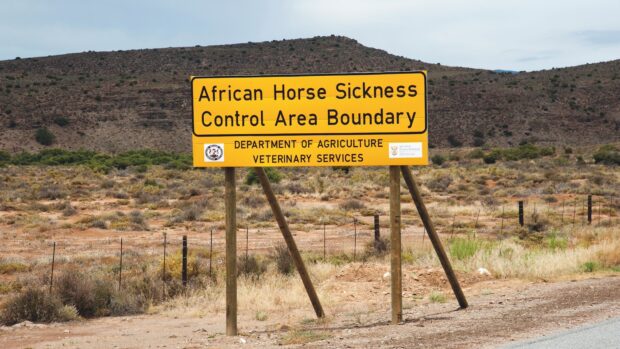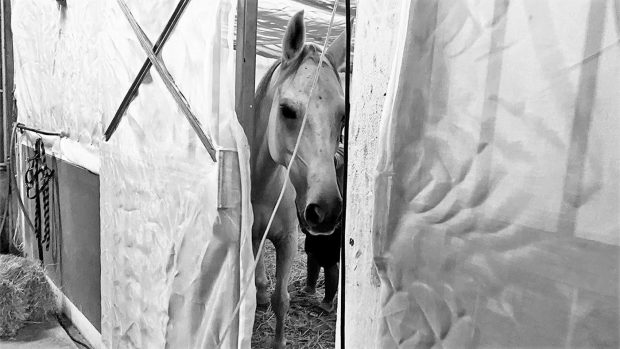Britain’s £3.4 billion equine industry is being put at risk by climate change. African Horse Sickness (AHS), a deadly virus carried by midges, is spreading due to warmer, windier weather. It poses a threat to horses and ponies in northern Europe, warns the Horse Trust.
At an awareness launch today, the Trust’s chief executive and resident vet Paul Jepson called on the government to develop contingency plans and support research into the prevention and control of African Horse Sickness in the UK.
“This is not a scare, this is a reality that we must stand up to,” he said.
African Horse Sickness is a viral infection which proves fatal in 90% of cases. Symptoms include fever, sweating, lack of energy and excessive salivation. The incubation period is usually 7-14 days but an infected horse can go from appearing healthy to dead within four hours.
In the 1950s an epidemic of AHS in India led to the death of around 800,000 equines and there have been outbreaks in Spain in the mid 1960s, 1988-90 and 1989.
Professor Philip Mellor, from the Institute of Animal Health explained: “The warmer it gets the easier it is for midges to transfer the virus. And although their flight range is very short, they can be transported on the wind for up to 100km.”
Vigorous slaughter policies and vaccines would be the only way to control AHS in the UK. A protected zone of at least 100km would be necessary around the infected area together with a surveillance zone of a further 50km. Both would need to be put in place for at least 12 months due to the windborne nature of the virus. The Trust says movement restrictions to and from the UK would have to remain in place for two years.
The British Equestrian Veterinary Association (BEVA), the Institute of Animal Health Pirbright Laboratory and Cambridge University are working together to research the disease and assess the likely impact of an AHS outbreak on the UK equine industry. The Horse Trust is advising horse owners not to panic but is calling on the government to devise contingency plans and support the ongoing research.
“We have no modern control available for this disease,” said Dr James Wood, director of the Cambridge Infectious Disease Consortium (CIDC). “We need to kick start an awareness campaign and get people thinking.”
Paul Jepson said: “This is a serious and potentially devastating problem. We have got to get abreast of the situation.”



